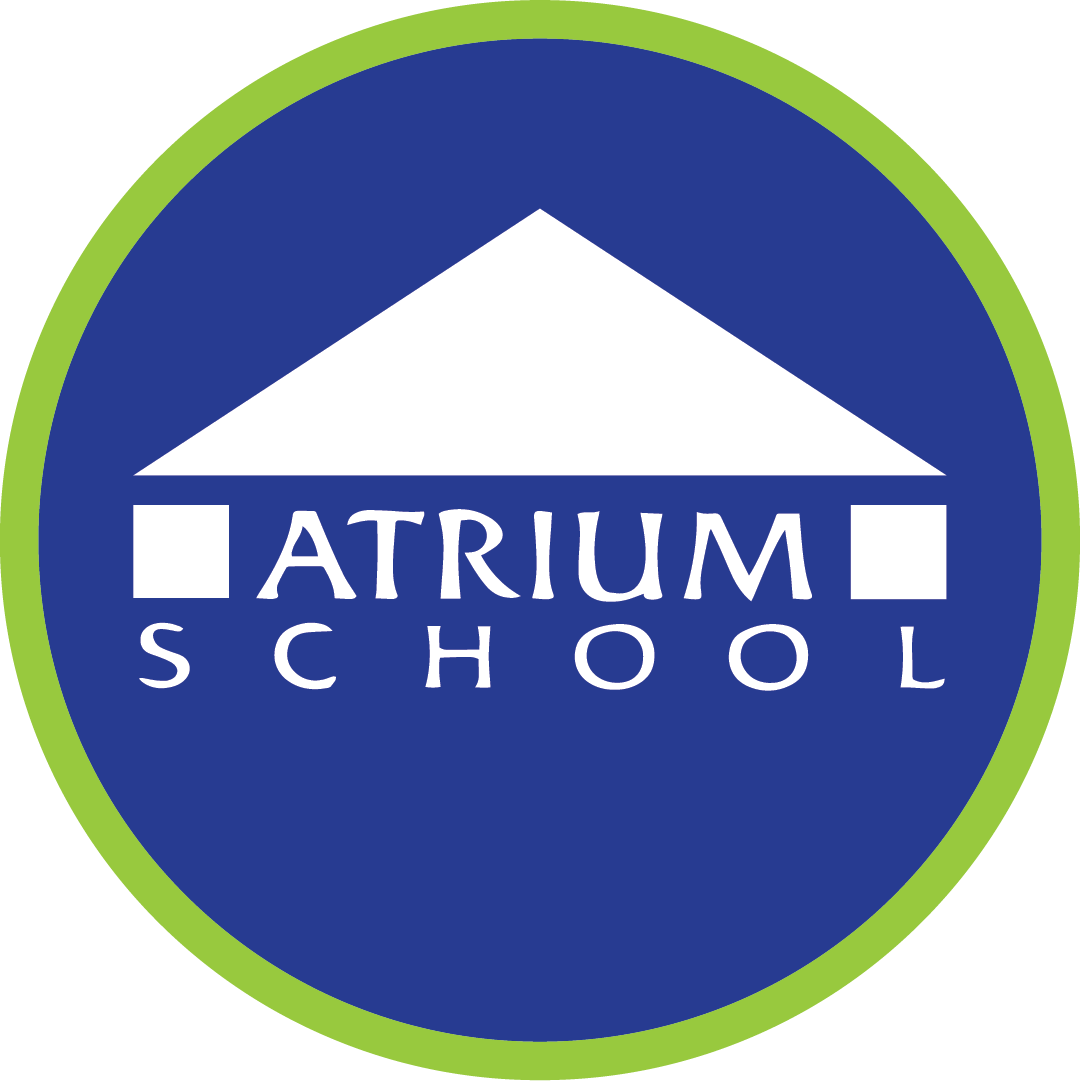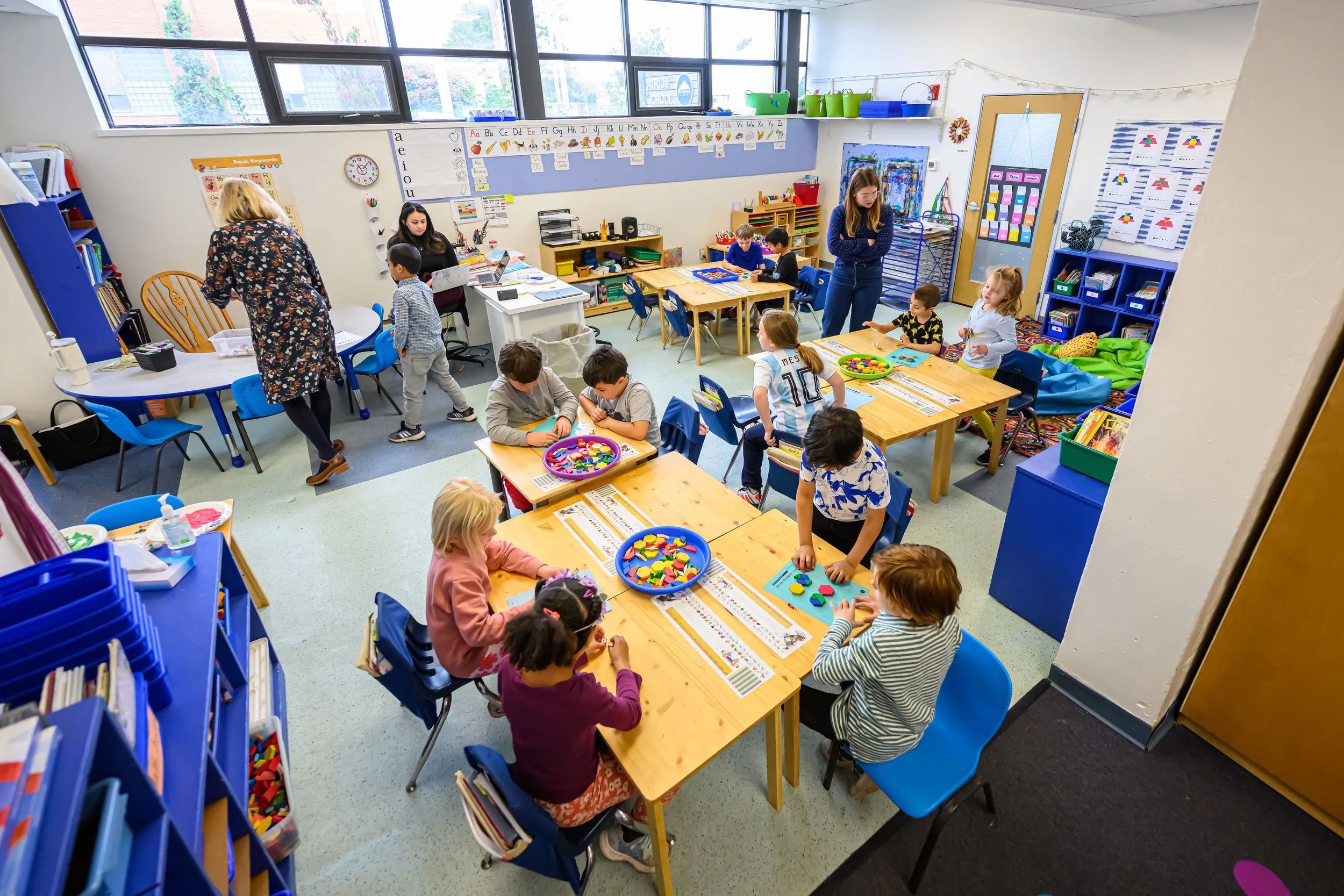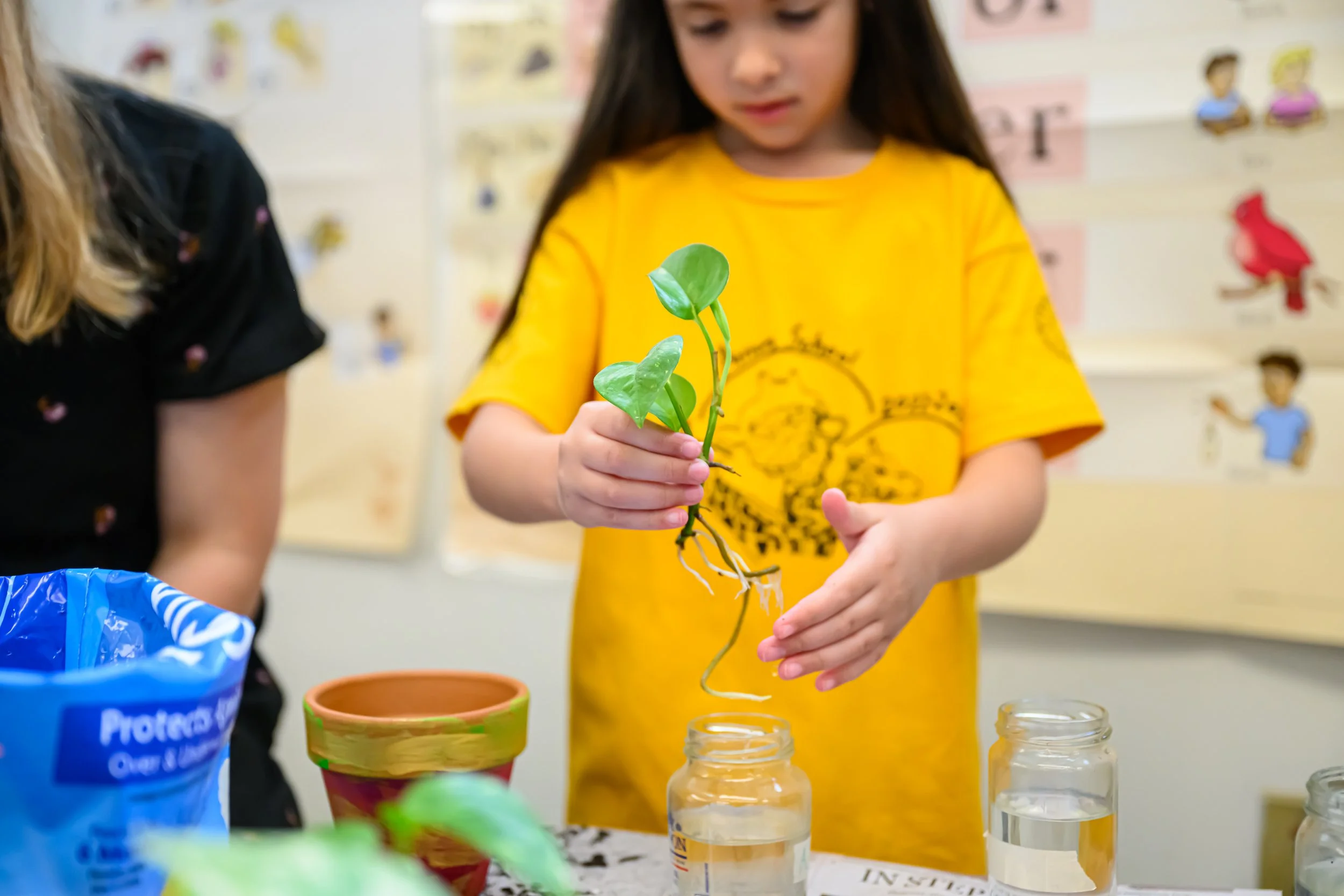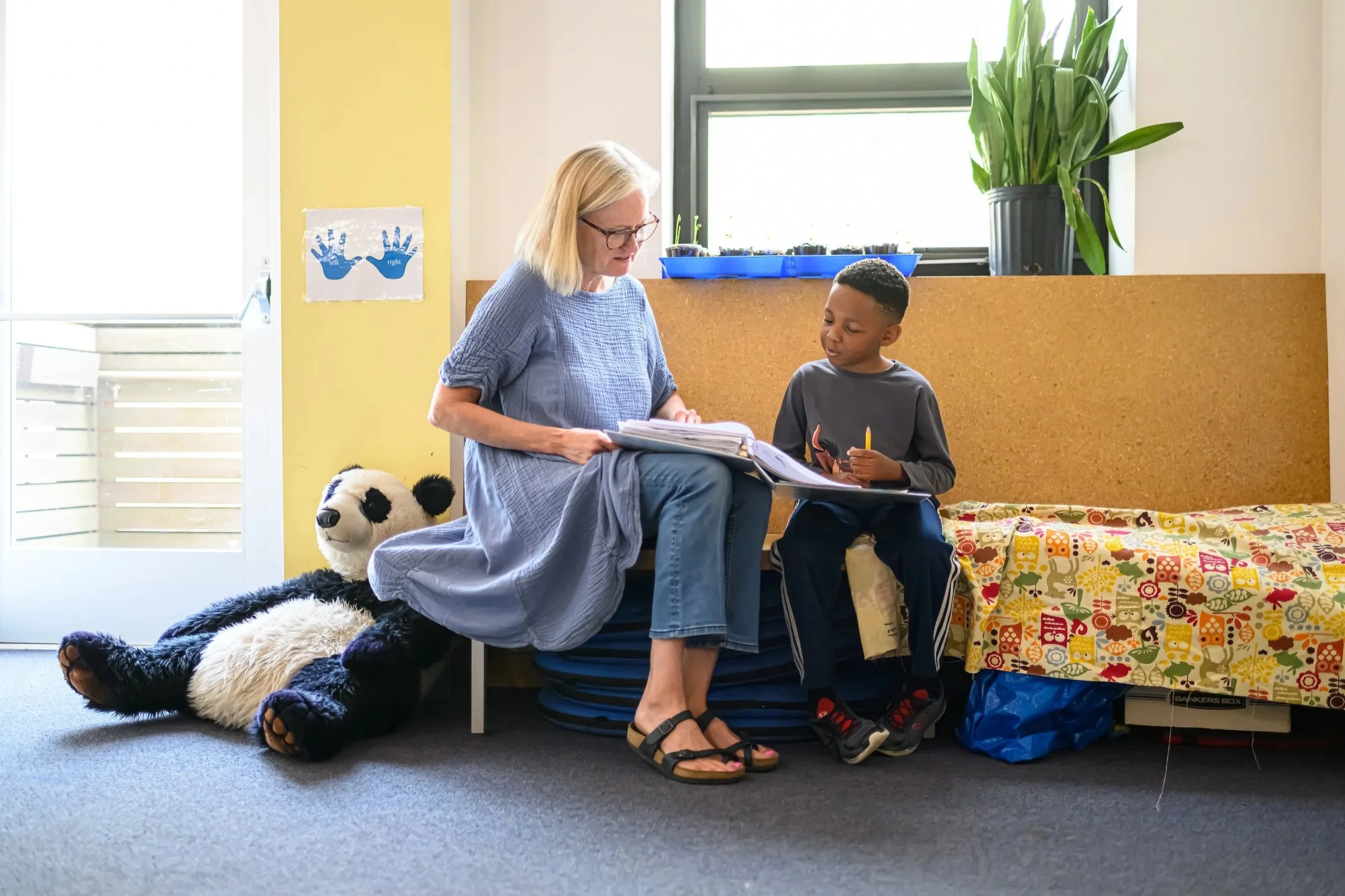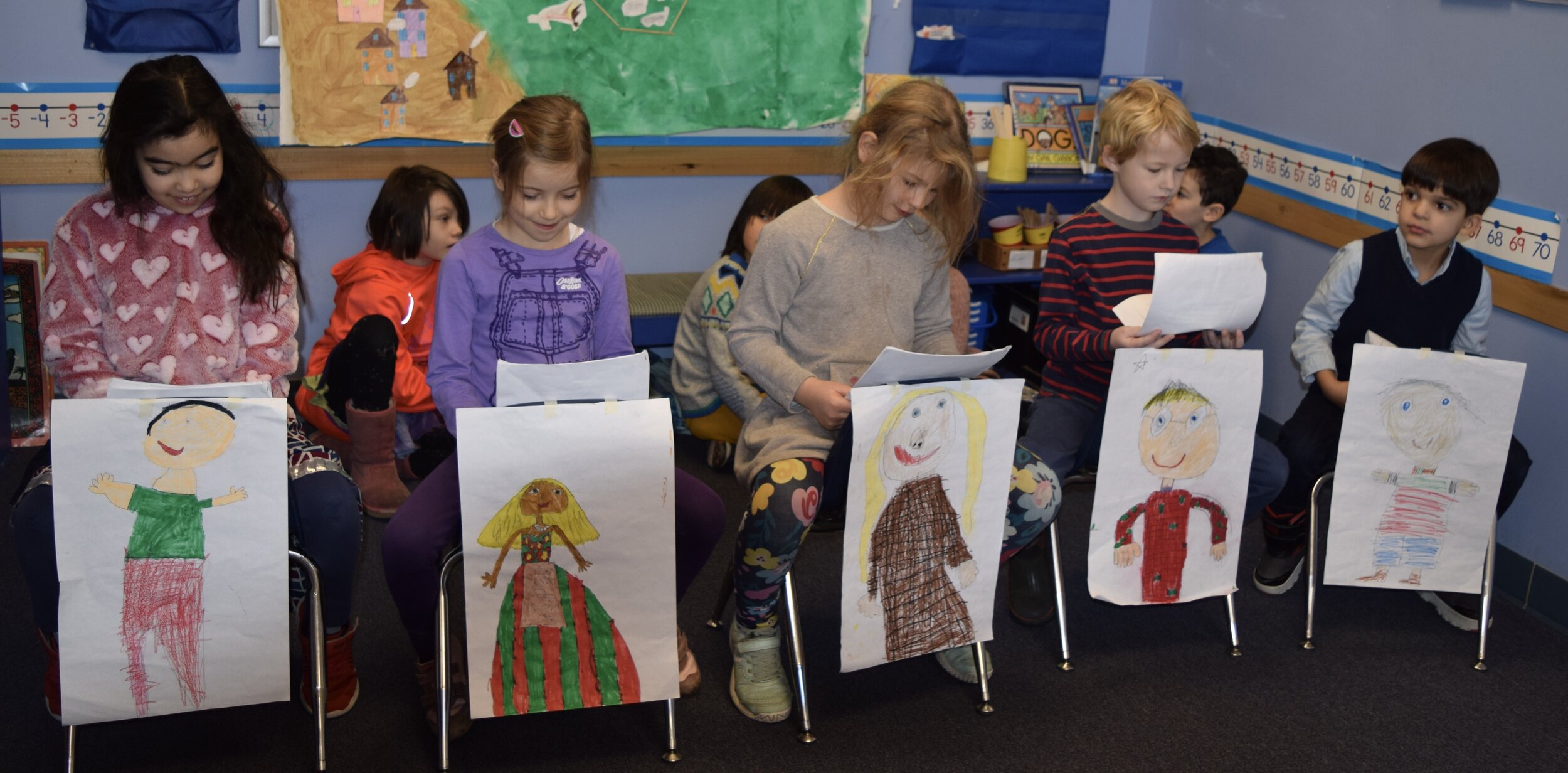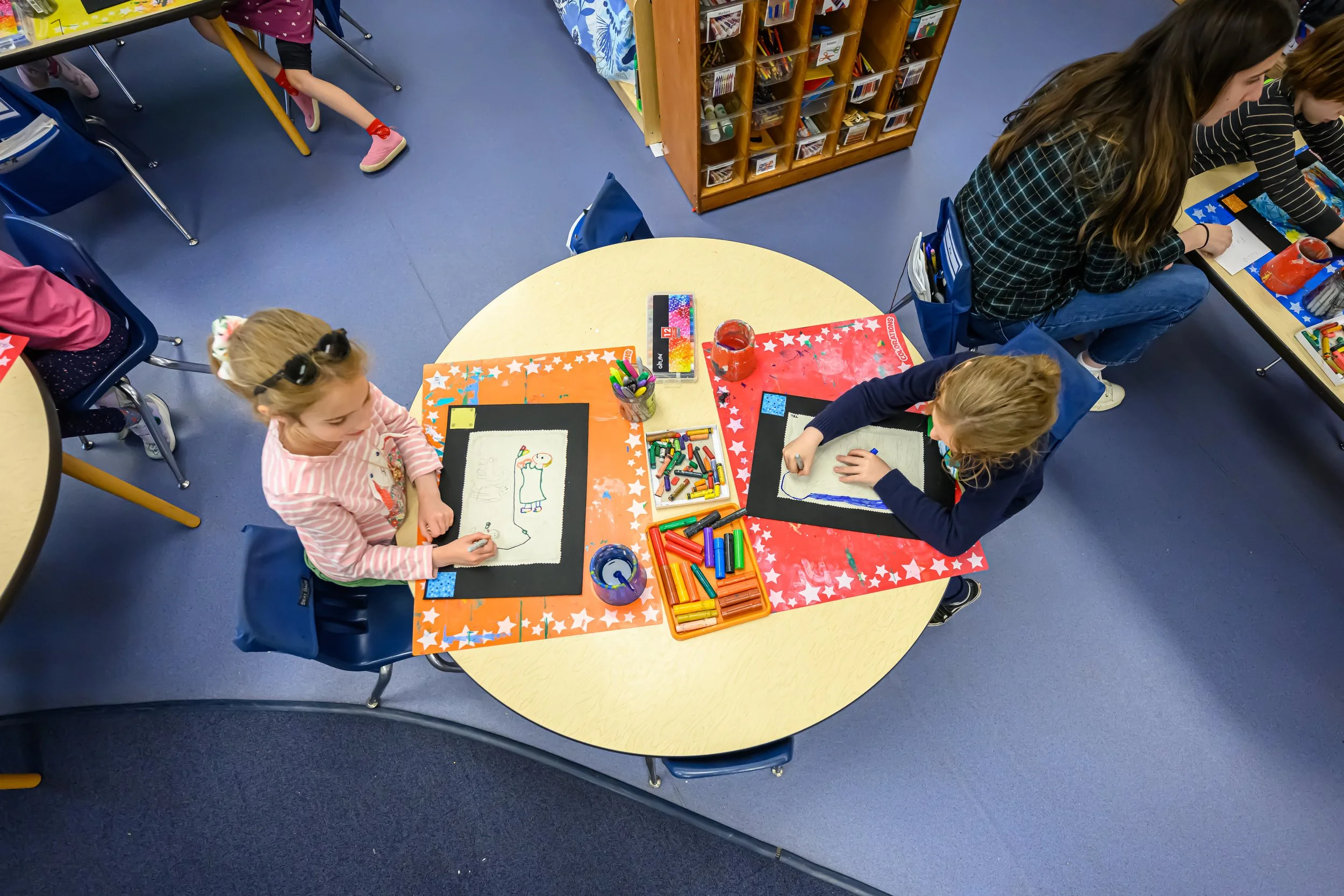Grade 1
First graders are eager, curious, imaginative, and enthusiastic. First grade activities are often new and challenging, and although children want to grow as readers, mathematicians, writers and explorers, they are sometimes fearful of new expectations. To create a climate of warmth and safety, we carefully teach essential routines and introduce classroom materials slowly and deliberately. We provide an exciting, hands-on curriculum with plenty of encouragement so that first graders can become engaged, confident, and increasingly more independent.
First graders are beginning to understand how a classroom community works and how they play an integral part in making their classroom comfortable, fun, and challenging. We encourage and teach them to use dialogue, to be honest and thoughtful in their interactions, and to realize that everyone makes mistakes that they can learn from. First graders have jobs, choices, and responsibilities which allow them to acquire the attributes of a hard worker, a good friend, and an active member of our community.
First Grade Theme: “What Is Adaptation?”
Thematic study is a way of focusing all aspects of children’s education at Atrium into a central idea. This interdisciplinary focus allows all kinds of learners to develop skills and experience success in their academic lives. Throughout the year, students have opportunities to share their work with their community and make connections between their learning and the world around them.
The first unit in first grade is called “About Me.” This unit helps students celebrate their individuality and learn about similarities and differences. It allows us to tell our stories, reflect on where we’ve come from and where we are, and to create a sense of community in our classroom. This thematic study integrates writing, reading, math, art, social studies, and science.
During our unit on solids and liquids, children explore their environment and experiment with everyday objects. They classify, experiment, observe, and document their observations as scientists do, and engage in active learning that is the foundation for later work in science.
Following on from the nature theme and Charles River focus in Kindergarten, first graders study Boston Harbor, providing them many opportunities for students to become writers, historians, mathematicians, and scientists. Explorations of Boston Harbor, along with classroom activities, help children discover sea and animal life, understand the past and present uses of our harbor, and learn about people who live and work there. Throughout the years we have established ties with institutions such as Northeastern University, the New England Aquarium, the National Park Service, and the Boston Harbor Islands Partnership. This has exposed first graders to a number of exciting learning experiences: tide-pooling on a private beach in Nahant, visiting a Boston Harbor Island, and touring a cruise ship and container terminal in downtown Boston. In the classroom, we incorporate units on the food chain, animal habitats, and adaptations. At the end of the year, students are ready to use print resources and technology to research ocean animals, write reports, and create exhibits for our classroom museum.
Classroom Structure
Literacy
We believe that a literacy-rich classroom environment is critical to the reading development of each child. Our daily literacy block engages children in listening to reading out loud, reading independently, reading with a buddy or in a small group, and reading one-on-one with a teacher. When given encouragement and direct teaching, children at Atrium build good reading habits that can last a lifetime.
In addition, each child works in a teacher-directed small group to learn the structure of written English in a rule-based, multisensory reading program that includes daily guided-reading practice. Through a year-long series of activities and games, first graders expand on their list of sight words, recognize spelling patterns, and deepen their understanding of how words are made. Because young children develop at their own pace as readers, our reading program is highly individualized, designed to meet children where they are and move them forward steadily throughout the year.
Our daily writing workshop engages children in drawing, writing, publishing, and sharing stories on topics drawn from their own experience. We assist them in thinking about events, activities, people or places they know well, and topics they are interested in writing about. In several different units of study, we explore issues of genre, style, craft, and conventions, inviting students to try out these writing techniques in their own stories.
Employing a workshop model, teachers confer individually with students on a regular basis to develop each child’s voice and to instill in them the habit and process of revising their own work, while providing encouragement. Our goal is have children begin to see themselves as authors who belong to a larger community of writers that includes their peers, their teachers, and published authors.
Our handwriting curriculum, called "Handwriting without Tears," is a research-based approach to promoting fast, efficient, and legible letter formation.
Mathematics
We are committed to the belief that all students are capable mathematical thinkers and we support first graders as they develop their number sense and reasoning abilities with hands-on, multi-sensory mathematical activities. Our program is based on the Investigations curriculum developed by TERC and aligned with Common Core. It provides a clear, focused curriculum that builds competence in number sense, computation, geometry, pre-algebra, measurement, and data collection. During our daily mathematics workshop, we encourage children to wrestle with new ideas, work at making them fit with what they already know, and challenge their own ideas as well as those of others. We continually assess each child to understand how they are thinking and to move them forward in their mathematical understanding and computational fluency. Our theme also provides us with many opportunities to practice math in an authentic way, including activities in which mapping, measuring, and gathering data play important roles.
Social and Emotional Development
In first grade, as in all grades at Atrium, social and academic growth are valued equally. We strive to get to know children and their families well, and to develop relationships that nurture and help children and families grow and thrive throughout their years at Atrium.
Our approach varies depending on the strategy we want to teach or the situation at hand. We tell and read stories that allow children to formulate ideas about how people are similar and how they are different. We teach and model strategies that help them take new perspectives and practice effective conflict resolution. Children learn about stereotypes and assumptions, and teachers present material with an anti-bias lens.
At the beginning of the first grade year, although children are willing to try to solve problems with increased independence, teachers often need to try to “come early” and “stay late” during difficult moments to help children resolve conflicts. First graders are often sensitive themselves, but can be bossy, teasing, or critical of others. At this age, they will sometimes begin testing the rules to see what will happen if they don’t comply. Perspective taking, becoming aware of logical consequences, and knowing they can be thoughtful about their options helps create a peaceful classroom. Over the course of the year, children learn how to identify the difference between big and small problems. They learn how to use effective, developmentally appropriate strategies and language, they figure out the difference between reporting and tattling, and they learn what it means to cooperate and compromise. We involve families by frequently communicating about each child's social development throughout the year.
